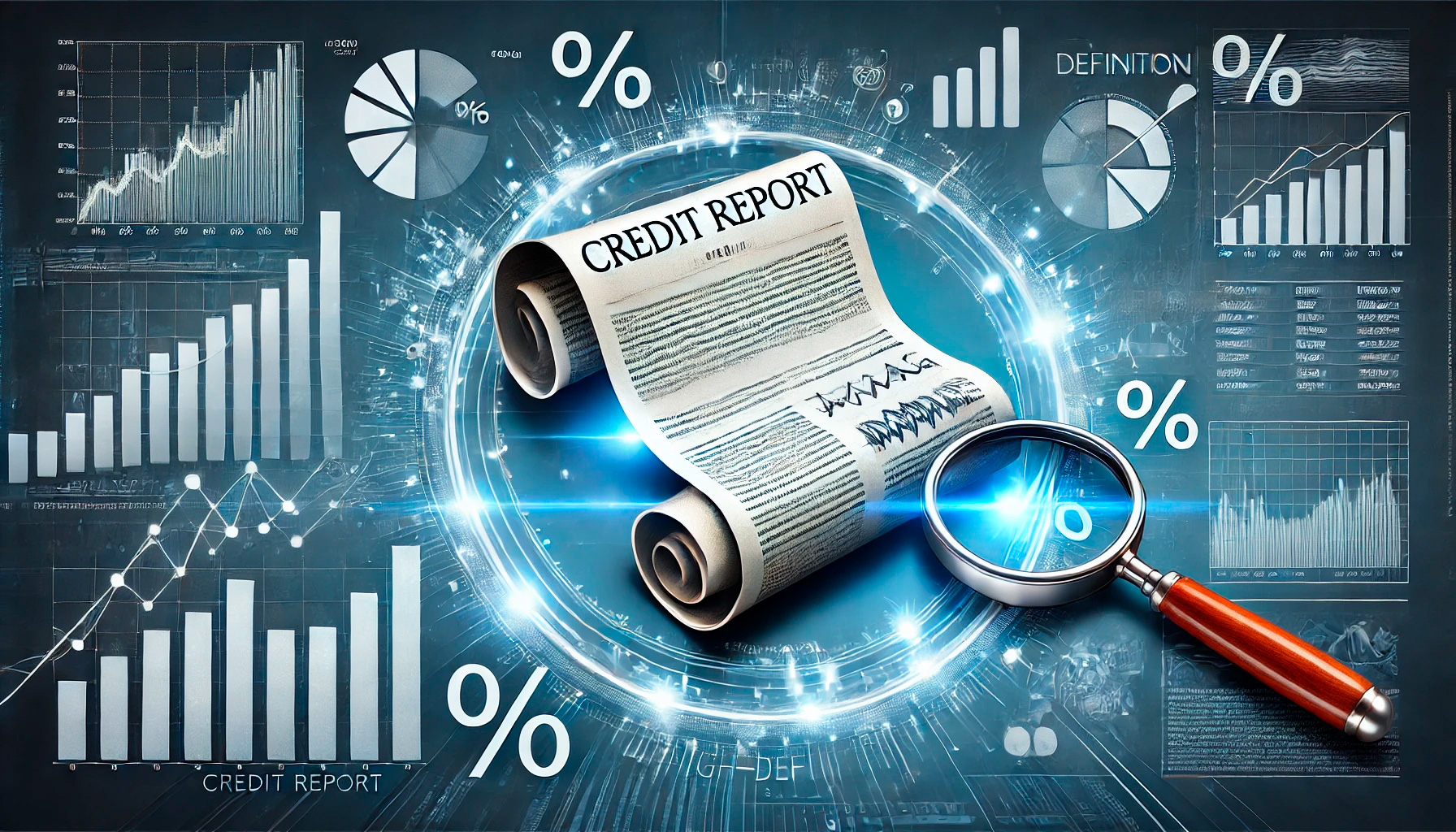In the quest for financial freedom, understanding your credit report is a critical first step. Your credit report is more than a document—it’s a snapshot of your financial health and a roadmap that lenders, landlords, and even employers use to evaluate your trustworthiness. By learning to interpret and manage your credit report, you gain control over your financial destiny and unlock opportunities that lead to stability and growth.
What is a Credit Report?
A credit report is a detailed record of your credit history, maintained by major credit bureaus such as Experian, Equifax, and TransUnion. It includes information about your credit accounts, payment history, outstanding debts, and public records like bankruptcies or liens. Each piece of data contributes to your credit score, which serves as a summary of your creditworthiness.
Credit reports are used by lenders to assess your ability to repay loans, by landlords to evaluate your reliability as a tenant, and even by some employers to gauge financial responsibility. Understanding what’s included in your report and how it’s used is essential for managing your financial reputation.
The Key Sections of Your Credit Report
Credit reports are divided into several sections, each providing specific details about your financial behavior. The first section contains personal information, including your name, address, Social Security number, and employment history. While this data doesn’t impact your credit score, it’s crucial for verifying your identity and ensuring the accuracy of your report.
The second section lists your credit accounts, also known as trade lines. This includes credit cards, loans, and mortgages, along with details like account balances, credit limits, and payment history. Lenders use this information to evaluate how you manage debt.
Next is the public records section, which contains negative information such as bankruptcies, foreclosures, and tax liens. These entries can significantly impact your credit score and remain on your report for several years. Finally, the inquiry section lists entities that have reviewed your credit, distinguishing between soft inquiries (which don’t affect your score) and hard inquiries (which can lower your score slightly).

Why Your Credit Report Matters
Your credit report is more than just a financial record—it’s a gateway to financial opportunities. A clean, accurate report can help you secure lower interest rates, qualify for higher loan amounts, and negotiate better terms on financial products. Conversely, errors or negative marks on your report can limit your options, increase borrowing costs, and create barriers to achieving your financial goals.
Regularly reviewing your credit report helps you stay informed about your financial standing and identify potential issues. It’s also an essential step in protecting yourself against identity theft, as fraudulent accounts or inquiries often appear on credit reports before they’re noticed elsewhere.
How to Access and Review Your Credit Report
Under the Fair Credit Reporting Act (FCRA), you’re entitled to a free copy of your credit report from each of the three major bureaus once per year through AnnualCreditReport.com. Take advantage of this right by requesting your reports regularly and reviewing them carefully.
When reviewing your credit report, focus on accuracy and completeness. Look for errors such as incorrect account balances, late payments that were made on time, or accounts that don’t belong to you. Pay attention to outdated information, such as closed accounts still listed as open or debts that should have been removed after the statute of limitations expired.
Steps to Address Errors on Your Credit Report
If you find inaccuracies on your credit report, take immediate action to correct them. Start by contacting the credit bureau reporting the error. Provide detailed information about the issue, including account numbers and supporting documents such as bank statements or payment confirmations.
The credit bureau is required to investigate disputes within 30 days and notify you of the results. If the error is confirmed, it will be corrected, and you’ll receive an updated report. For persistent issues, consider contacting the creditor directly or seeking assistance from a consumer protection agency.

Using Your Credit Report to Improve Your Score
Your credit report is a powerful tool for identifying areas for improvement and taking action to boost your credit score. For example, if your report shows a high credit utilization ratio, focus on paying down balances to improve this metric. If late payments are a recurring issue, set up automatic payments or reminders to ensure timely payments moving forward.
Regularly reviewing your credit report also helps you track progress toward your financial goals. Celebrate milestones like paying off a loan or reaching a higher credit tier, and use these achievements as motivation to maintain positive financial habits.
Protecting Your Credit Report
Maintaining the integrity of your credit report is essential for long-term financial health. One of the most effective ways to protect your report is by monitoring it regularly for suspicious activity. Many credit monitoring services offer alerts for changes to your report, such as new accounts or inquiries, helping you detect and respond to identity theft quickly.
Additionally, consider placing a fraud alert or credit freeze on your report if you suspect unauthorized activity. These measures restrict access to your credit, making it harder for fraudsters to open accounts in your name. Keep your personal information secure and avoid sharing sensitive details unless absolutely necessary.
The Benefits of a Clean Credit Report
A well-maintained credit report opens doors to financial opportunities and provides peace of mind. With a clean report, you can secure loans with favorable terms, rent properties with ease, and even reduce insurance premiums. Strong credit also enhances your financial reputation, making it easier to build relationships with lenders, landlords, and other stakeholders.
Beyond practical benefits, a clean credit report contributes to financial confidence. Knowing that your report accurately reflects your responsible financial behavior allows you to pursue goals with clarity and assurance. It’s a key component of achieving long-term stability and growth.
Conclusion: Empower Yourself with Knowledge
Understanding your credit report is a vital step toward financial freedom. By learning to interpret this document, addressing errors, and using the insights it provides, you can take control of your financial future and unlock new opportunities. Whether you’re building credit, improving your score, or protecting your identity, a proactive approach to your credit report is the foundation of success.
Start today by requesting your credit report, reviewing it carefully, and taking action to address any issues. Each step you take brings you closer to financial independence and the confidence to achieve your dreams. Your credit report isn’t just a record—it’s your ticket to a brighter financial future.

